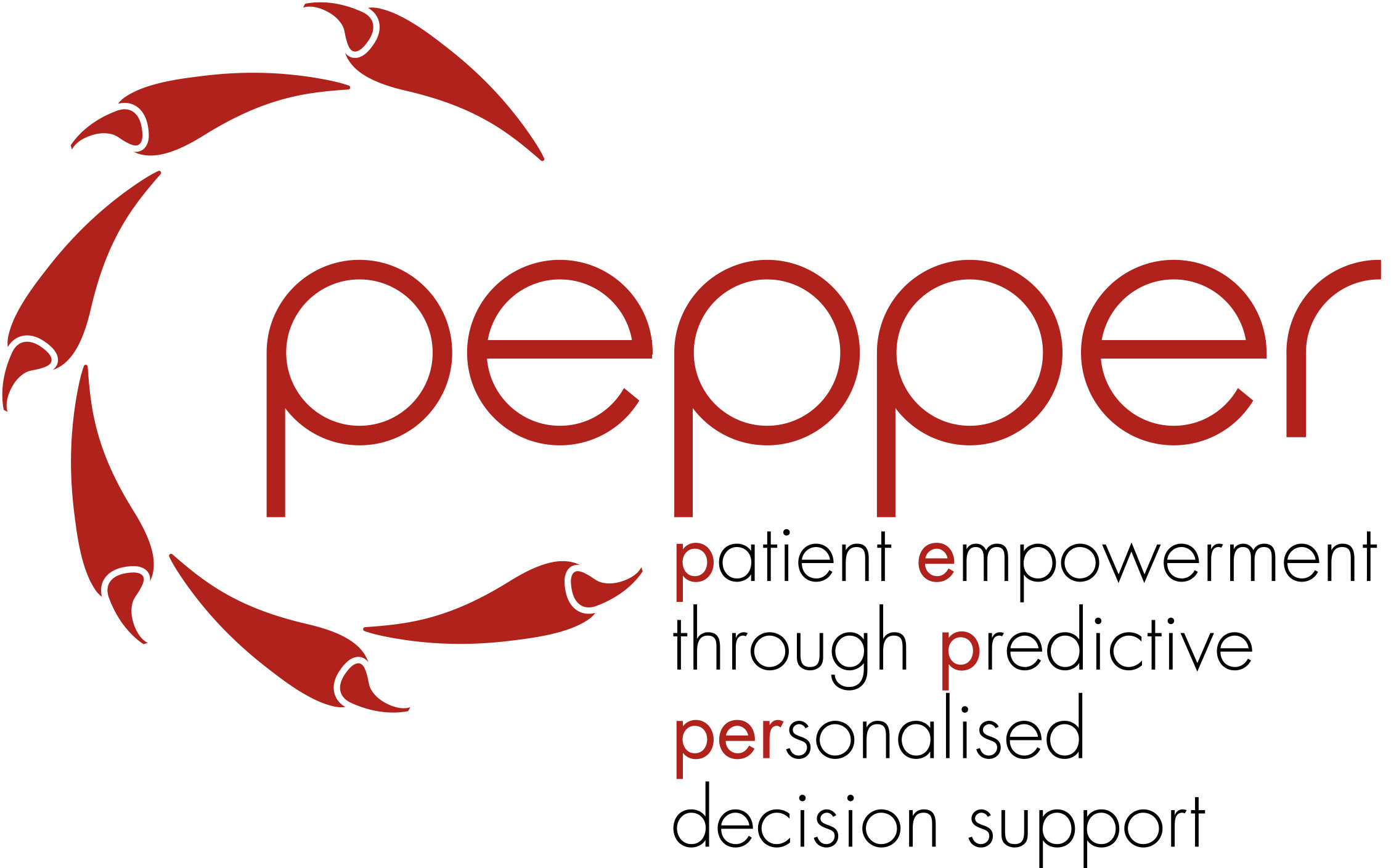Introduction
PEPPER (Patient Empowerment through Predictive PERsonalised decision support) provides a personalized decision support system for type 1 diabetes self-management [1]. The PEPPER system includes an AI-powered insulin dose recommender [2] and a safety system comprising predictive glucose alerts, predictive low-glucose suspend, adaptive carbohydrate recommender, and dynamic insulin constraint [3], with dual architecture to cater for both multiple daily injections and insulin pump treatment.
Real-time continuous glucose monitoring and an activity monitor communicate to the handheld device which synchronises with a secure web server for remote clinical supervision. PEPPER complies with all medical software standards (IEC 62304, IEC 62366, SnomedCT, and HL7) and has been clinically evaluated through a randomised cross-over clinical study.
Although PEPPER was designed to be used as a whole, it is also possible to use its multiple individual components in an independent way. The corresponding PEPPER application program interfaces (APIs) are available under different licensing agreements as detailed here, together with the associated documentation.
API Overview
The PEPPER API comprises four individual APIs, together with a system architecture document to define the architecture and interoperability mechanism. The constituent APIs are as follows:- insulin dose recommender;
- safety system;
- handset graphical user interface;
- web interface (backend and frontend).
All of the APIs are developed in JAVA, apart from the web interface API which is developed in C#. All APIs use a JSON messaging system for communication between handset and server.
The PEPPER API provides a convenient way to integrate a variety of software modules into an insulin decision support system or artificial pancreas. The algorithms have been shown to work together, without conflict, in the PEPPER system, which has been clinically evaluated.
Acknowledgements
This project has received funding from the European Union’s Horizon 2020 research and innovation program under grant agreement 689810.
References
- Herrero, P., López, B., & Martin, C. (2016). Pepper: Patient empowerment through predictive personalised decision support. In ECAI Workshop on Artificial Intelligence for Diabetes (pp. 8-9).
- Torrent-Fontbona, F., & López, B. (2018). Personalized adaptive CBR bolus recommender system for type 1 diabetes. IEEE Journal of Biomedical and Health Informatics , 23(1), 387-394. DOI: 10.1109/JBHI.2018.2813424.
- Liu, C., Avari, P., Leal, Y., Wos, M., Sivasithamparam, K., Georgiou, P.,Monika Reddy, Fernández-Real, J.M., Martin,C., Fernández-Balsells, M., Oliver, N. Herrero, P. (2019). A Modular Safety System for an Insulin Dose Recommender: A Feasibility Study. Journal of Diabetes Science and Technology. DOI: 10.1177/1932296819851135
